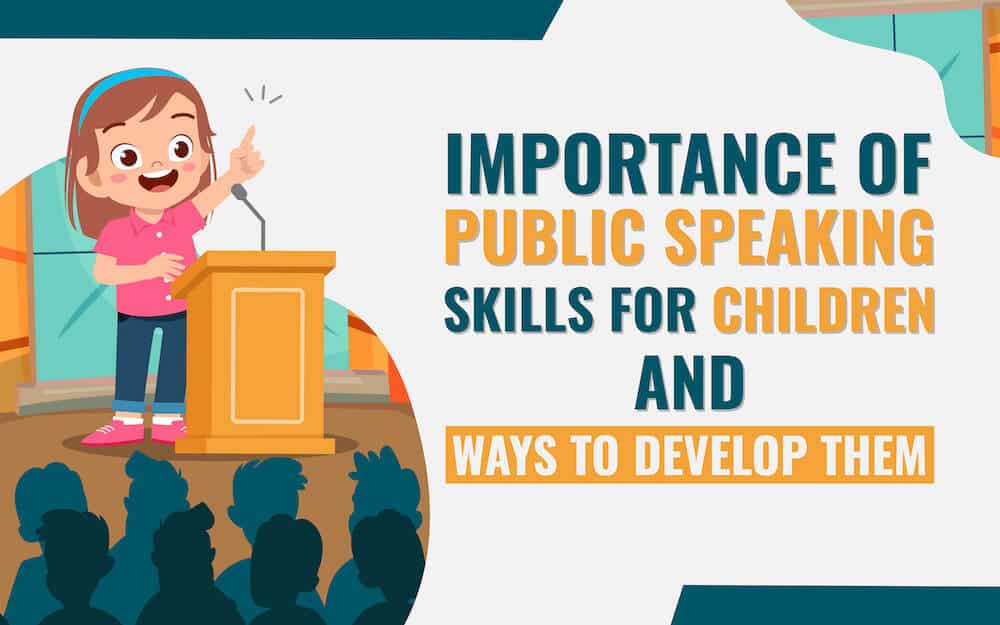
Impromptu speaking is the art of delivering articulate and compelling messages spontaneously without prior preparation. It is a skill that transcends the boundaries of formal presentations, requiring individuals to think on their feet and respond eloquently to unexpected situations.
Thus, the ability to convey thoughts clearly, concisely, and with confidence is paramount here. This form of communication also demands a unique set of skills, including quick thinking, adaptability, and the capacity to organize thoughts coherently in real-time.
Mastering impromptu speaking is not only about verbal fluency but also about understanding the nuances of non-verbal communication. It involves harnessing body language, eye contact, and gestures to complement spoken words, creating a holistic and impactful delivery.
In this article, we will take you through six steps that will help you find your niche and establish yourself as an amazing speaker.
1. Navigating the Uncharted Territory
When you speak spontaneously, uncharted territory often becomes the proving ground for one’s ability to navigate ambiguity gracefully. By embracing the current moment, individuals can tap into their intuitive faculties, allowing their authentic voice to emerge.
Rather than viewing unexpected speaking situations as daunting challenges, consider them opportunities to showcase adaptability and resourcefulness.
This shift in perspective can transform what might have initially seemed like a curveball into a chance to shine, leaving a lasting impression on your audience.
2. Being Authentic and Real
Being present at the moment goes hand in hand with acknowledging authenticity, as there is no script to follow. Such a liberating aspect allows your genuine self to surface, fostering an intuitive connection with your listeners that scripted speeches might struggle to achieve.
The audience often appreciates and resonates with speakers who are unafraid to share their true thoughts and feelings. As you speak about the unexpected, remember that your voice possesses a unique power that can captivate and inspire people.
3. Keeping Up with General Knowledge
Imagine being told that you need to deliver a speech on a certain piece of news in a few minutes, and you realize that you have no idea about the same. Well, at that moment, you might regret not flipping through the newspapers and reading the news online!
Thus, a well-rounded understanding of various subjects acts as a compass, guiding speakers through the diverse terrains of sudden speeches. General knowledge also serves as the foundation upon which eloquent responses are built.
It not only instills confidence but also equips one with the versatility to engage in discussions on various topics.
By continually broadening your knowledge base, you are expanding the palette from which you draw insights, anecdotes, and references, allowing you to adapt to the twists and turns of this discourse seamlessly.
4. Learning Continuously
Staying informed in today’s fast-paced world is a commitment to continuous learning. Embracing a curious mindset and actively seeking out information from diverse sources enables individuals to be well-prepared for unexpected speaking situations.
Whether through reading, podcasts, documentaries, or engaging in meaningful conversations with a wide array of people, pursuing knowledge becomes a lifelong journey.
Remember that the goal is to accumulate facts and cultivate a deep understanding that empowers you to navigate any impromptu speaking scenario with finesse and intellectual agility. A curious and informed mind can become a powerful asset, enriching your speaking repertoire.
5. Rehearsing for Spontaneity
Much like any other skill, impromptu speaking benefits immensely from intentional practice. Creating and simulating scenarios serves as a rehearsal ground where individuals can hone their ability to think on their feet.
These simulated challenges act as a crucible for refining not only the content of the extempores but also the delivery and composure under pressure. Through consistent practice, individuals can develop a mental toolkit of approaches, allowing them to handle unforeseen situations with confidence and adaptability.
To begin your rehearsals, commence by selecting diverse topics encountered in various settings, ensuring a well-rounded practice. Introduce an element of time pressure to simulate the urgency often associated with impromptu speaking. Additionally, consider varying the audience dynamics, from casual conversations to more formal settings, to prepare for different communication contexts.
Embrace the spontaneity of these simulated challenges, and over time, you’ll become adept at handling the unexpected and thriving in the art of impromptu expression.
6. Understanding Body Language
Body language is a silent symphony pivotal in communicating confidence. Your posture serves as the conductor of this, dictating the rhythm and tone of your message. Stand tall with shoulders back, projecting an image of self-assuredness.
This simple adjustment conveys confidence to your audience and fosters a sense of assurance within yourself, positively impacting your overall delivery.
The deliberate orchestration of your presence in impromptu situations can transform a seemingly spontaneous response into a well-composed and confident performance.
Further, gestures add layers of expressiveness to your speech. Thoughtful and purposeful gestures can emphasize key points, forge a connection with your audience, and enhance the overall impact of your speech.
Conclusion
Impromptu speaking is not just a skill; it is an art form that everybody can cultivate and refine. The ability to express yourself effectively in the spur of the moment becomes a valuable asset and sets you apart from others.
Whether you find yourself unexpectedly asked to share your perspective or called upon to address a group without prior notice, mastering this art can make all the difference.
Remember, the tips you have explored today are not merely tools for communication; they are gateways to self-assurance, adaptability, and the art of connecting with others on a deeper level.
We hope this article helps you. Let us know what you think in the comments section below!



